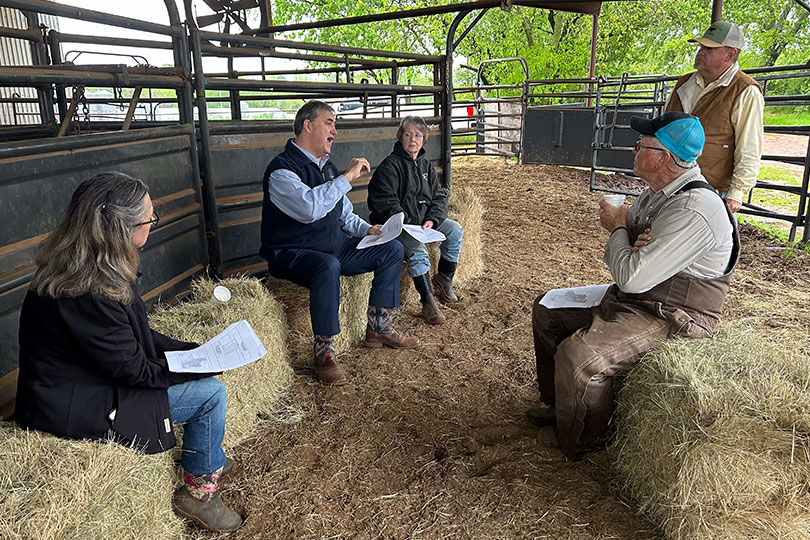By Emmy Powell
Communications Specialist
Farmers and ranchers in East Texas invited U.S. Congressman Nathaniel Moran to visit their operations.
The tour allowed the congressman, farmers and ranchers a chance to discuss Texas agriculture and how farmers and ranchers are impacted by legislation crafted in Washington, D.C.
“The fact that the congressman was willing was refreshing,” Mike Thompson, a Titus County beef and poultry farmer, said. “He showed up interested. He wanted to know everything because the more he knows, the better informed he is. And the better informed he is, the better decisions he can make when he has to vote on things that are important to us.”
Thompson’s farm was one of several stops on the tour. Moran learned more about beef cattle, poultry and issues facing farmers and ranchers during the visit.
“During this visit, we wanted Congressman Moran to get a feel for what we do and what we face, especially regarding inflation,” Thompson said. “It was an opportunity for him to understand how enormous the task is of feeding and clothing Americans.”
Moran recognizes the importance of conversations and farm tours like this.
“One of the most important things that I can do is stay connected to our farming and our ranching community, because this year, one of the most important things we’re going to have to do in Congress is pass a farm bill,” he said. “We need to make sure that we get it right.”
The tour stops offered Farm Bureau leaders the opportunity to discuss the farm bill, packer consolidation and input costs, while building connections.
“The relationships that I’m developing with our farming and ranching community here in Northeast Texas are going to be vital when these bills come up for a vote for me to understand how the bill itself or the amendments to the bill impact the farming and ranching community,” he said.
Visits like these can be the building blocks between Texas farmers and ranchers and government officials.
“I’m thankful for all the farmers and ranchers out there in this country because of the work that they do. It’s hard work. It’s important work,” Moran said.


Leave A Comment